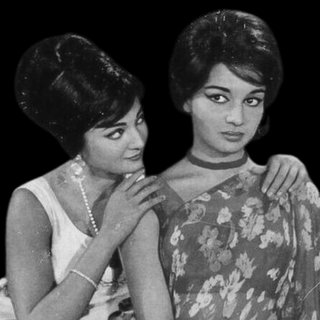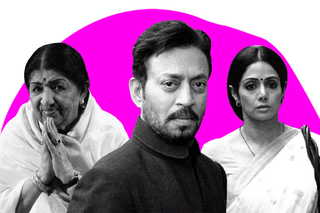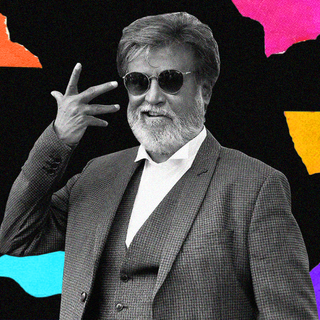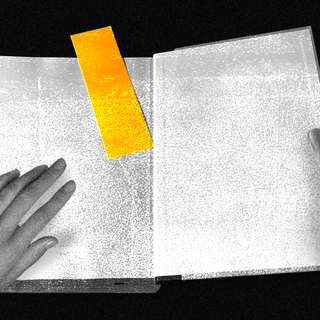
Why Celebrity Deaths Often Feel Like Personal Tragedies
“…it can feel like losing someone close to us because they may have been integral in some of our happiest or saddest moments.”

Sunday was a day of grief. “Now Symonds. We are losing our childhood [heroes] one by one,” a Twitter user from India wrote, lamenting the demise of Australian cricketer Andrew Symonds in a car accident this weekend. #RIPRoy trended on Twitter yesterday as the cricketing fraternity — and fans alike — expressed their shock and devastation online.
What stood out was the intensity of grief resonating through the digital corridors. Friends and family mourned unwaveringly; but for people who knew him only through the medium of the television, it felt like a loss unnervingly personal. This feeling is not unfamiliar; when actor Puneeth Rajkumar passed away in 2021, his legions of fans dissolved into mourning. Irrfan Khan’s death in 2020 added to the pandemic-inspired grief people were already in the throes of. Lata Mangeshkar’s demise this year made many Indians who had once basked in the glory of her melodies weep as they replayed the songs again. Sridevi’s demise in 2018 was a shock we haven’t quite recovered from, as was Sushant Singh Rajput’s death in 2020.
This was grief from a distance; one that was inexplicable and potent, even if the loss was of a person who was neither a friend nor a family. “My chest felt heavy… I just felt defeated, and though my family was worried about why I was reacting the way I was, it just felt so impulsive and natural that I couldn’t control it,” an individual noted following Singh’s death.
The “natural” here comes from the familiar connection people forge with celebrities. “We grow up with these people,” explained David Kaplan, chief professional officer of the American Counseling Association, about why the deaths of celebrities can make us feel as if we lost a friend — or, even family. “We see their movies, we hear their music on a regular basis and we really get to know them. In a sense, they become a member of our family — especially the ones we really like — so when they die, it’s like an extended member of our family dies. It’s somebody we feel like we know.”
Related on The Swaddle:
The Controversy Around Recognizing ‘Prolonged Grief Disorder’ as an Official Diagnosis
What also feeds this sense of familiarity is the borderless culture created by the internet. We are often as updated about their lives as we would be about our friends’. And usually, we’ve seen them evolve and grow right before us — if not through tabloid reports and media articles, then through their own social media accounts. This was the case with Chadwick Boseman, whose iteration of Black Panther will forever live rent-free in the hearts of superhero fans.
Further, while we may not have known many celebrities personally, they may have made a difference in our personal lives. This impact could be anything — ranging from a character played by them that motivated us to work on a particular aspect of our lives, to even just a fleeting moment of joy we experienced while watching them on-screen after getting home from a particularly unpleasant date. The news of their deaths can trigger a rather complicated, two-fold sense of loss. First, a sense of loss accompanies the realization that we won’t witness them weave magic through their new pieces of work anymore — making our own futures seem bleaker without them. Second, their passing often brings back memories from the time in our own life when we enjoyed their work — making us miss the person that we were, at that point in our lives.
It could, of course, be more nuanced too. “Maybe they were your first crush or maybe they represented an ideal, something you hoped that you could be. “…perhaps the celebrity held a particular important memory in your life — for example, they starred in a TV show that you watched growing up. In those cases, the death can feel like a loss of that particular part of your past,” Rachel O’Neill, a clinical counselor in Ohio, had told Teen Vogue.
Celebrity deaths can also catapult us into existential crises of sorts; in the process of thinking of them as larger-than-life personalities, we unconsciously assign to them a sense of immortality. “…our relationships with celebrities don’t necessarily follow typically understood measures of time and space. They seem immortal to us. Even if they die in a movie, our brain tells us, ‘No, they’re alive.’ Sometimes, we see them across eras and so, we tend to believe that they’re always going to be around,” Hvovi Bhagwagar, a Mumbai-based psychologist and psychotherapist, had told Vice, adding, “We don’t seem to connect to their deaths in the real world and because they seem immortal, the grief is even more astounding. It’s shocking and more difficult to accept.”
Related on The Swaddle:
When Talking About Death Is Taboo, How Can Grieving People Heal?
Much like the deaths of those close to us, the passing of celebrities, too, makes us question the point of living, explains Bhagwagar. In the process, it induces anxious pondering of questions like, “Will we live long enough to fulfill our destiny?”; “What will happen to my parents and significant others when I’m no more?”; “Will people miss me?”
One thing that’s unique to celebrity deaths, however, is the outpouring of grief on social media. The constant exposure can be overwhelming, and intensify, compound, or prolong the grief we’re already struggling with.
However, the same social media also offers people a community of people to share their grief with — validating their emotional turbulence and allowing them to participate in collective mourning.
“We are social creatures, we are meant to be with other people when we face adversity… You can get hundreds of people saying, ‘I know what you’re going through.’ And that’s very healing for us,” notes Kaplan.
Devrupa Rakshit is an Associate Editor at The Swaddle. She is a lawyer by education, a poet by accident, a painter by shaukh, and autistic by birth. You can find her on Instagram @devruparakshit.
Related


Overrated, Not: Rajinikanth
